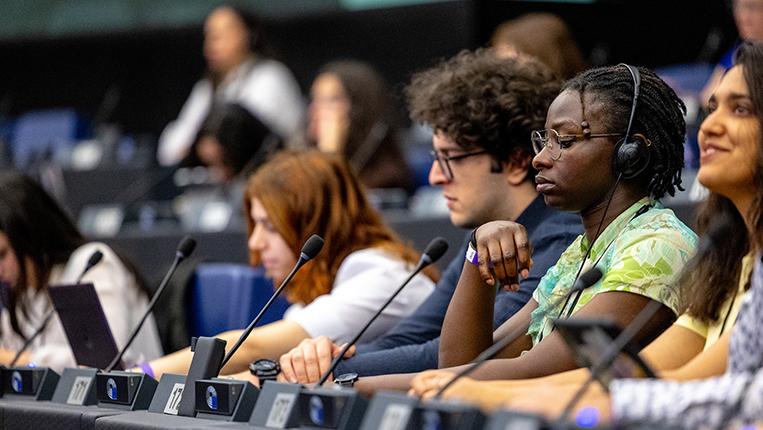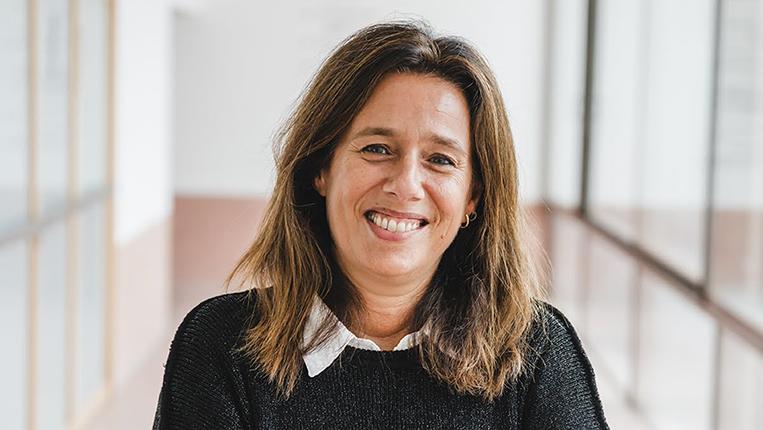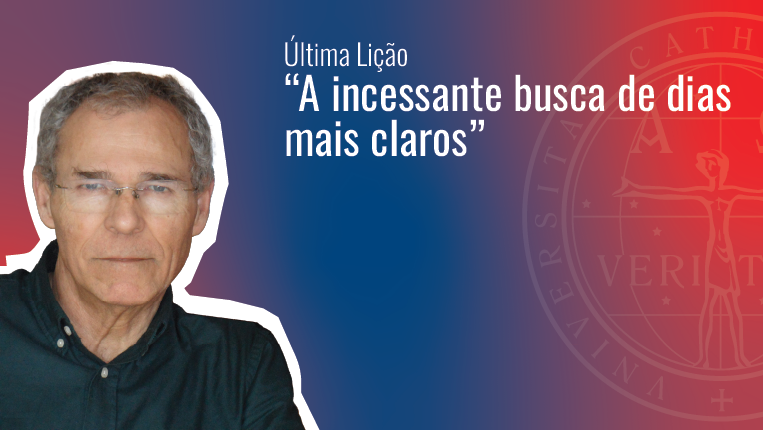Marco Valerio came from Italy to Porto as part of a joint PhD programme between LUMSA – Libera Università Maria Santissima Assunta (Italy) and the Faculty of Education and Psychology at the Universidade Católica Portuguesa (FEP-UCP). He describes this six-month mobility period as an “academically and personally meaningful” experience. Some moments challenge us, help us grow, and reveal new directions — and for Marco, this was undoubtedly one of them.
Focusing his doctoral research on teacher education — particularly the preparation of future primary school teachers — and with a keen interest in understanding how sustainability and citizenship are being integrated into initial teacher training programmes, Marco found at FEP-UCP a fertile space for dialogue, learning, and the collaborative construction of knowledge.
“From the very beginning, I felt welcomed and encouraged. More than an academic experience, it was a deeply human one,” Marco shares with enthusiasm.
A stimulating environment that encourages proactivity and initiative
Over the course of six months, Marco became fully immersed in the vibrant and collaborative academic ecosystem of FEP-UCP. He worked closely with Marisa Carvalho, a lecturer at FEP-UCP and his local supervisor in Portugal, and took part in the international EDULEARN 2025 conference, where he presented part of his doctoral research.
But the experience extended well beyond that: Marco actively engaged in two international mobility programmes (Blended Intensive Programmes – BIPs), one in Romania and another in Porto. These initiatives brought together students, researchers, and academics from various countries to tackle global educational challenges. In these contexts, Marco not only participated but also co-designed and led workshops, further developing his communication, leadership, and teamwork skills in an international setting.
Learning through challenges, growing through people
Despite the welcoming environment and the strong academic culture of collaboration at FEP-UCP, this mobility experience was not without its challenges. Language barriers and the logistical complexity of conducting case studies in external institutions within a limited timeframe required flexibility and adaptability. Nevertheless, these obstacles were successfully overcome, thanks to the strong support network he found at the faculty.
“I learnt to be flexible and to trust the process. The support from my supervisor and colleagues was essential. I realised that listening to those with more experience and adapting the path along the way are important steps to ensure the sustainability of a research project,” he adds.
A message for future doctoral students: the human value of international academic mobility
To doctoral students considering an international mobility period — particularly in the context of a joint PhD at FEP-UCP — Marco Valerio offers a clear and heartfelt message: “Embrace the experience wholeheartedly. It’s not just about enhancing your CV, but about truly engaging — being curious and proactive. When we commit to the process, transformation happens — and it’s not just academic, it’s deeply personal.”
He believes that some of his most memorable moments are linked to the human relationships he built: “The kindness and attentiveness of my supervisor, my colleagues, and other members of the faculty made me feel welcomed and supported beyond the academic sphere.”
Finally, he considers it especially rewarding to have had the opportunity to present and discuss his research — developed jointly between LUMSA University and FEP-UCP: “Presenting my work, receiving feedback, and seeing the level of interest it generated helped me understand the relevance and potential impact of my research. It was a powerful reminder of the importance of placing solitary academic work into dialogue with others,” he concludes.










